
the Workshop held on 7th September 2009, Budapest
Participants
Pictures
Speeches
Presentation
| Alan AtKisson | 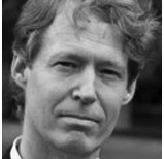 Starting in 1988, Alan has worked as a writer, communicator, consultant and strategic advisor on sustainable development, working with a wide variety of organizations and projects. He has focused primarily on the design and implementation of comprehensive sustainability strategies, policies, and mobilization initiatives, working at levels ranging from small cities to national and multi-country processes. During that time he has invented or co-developed a number of tools and methodologies in the fields of sustainability indicators, assessment, training, and planning. These tools and methods (the "ISIS Method" and "ISIS Accelerator Tools") have been adopted and used internationally, spread through a global network of licensed users and affiliated practitioners (the “AtKisson Group”) of which Alan is President. He is the author of two books ("Believing Cassandra" 1999, "The ISIS Agreement" 2008); a contributor to many other books, journals and websites; and a singer and songwriter. Starting in 1988, Alan has worked as a writer, communicator, consultant and strategic advisor on sustainable development, working with a wide variety of organizations and projects. He has focused primarily on the design and implementation of comprehensive sustainability strategies, policies, and mobilization initiatives, working at levels ranging from small cities to national and multi-country processes. During that time he has invented or co-developed a number of tools and methodologies in the fields of sustainability indicators, assessment, training, and planning. These tools and methods (the "ISIS Method" and "ISIS Accelerator Tools") have been adopted and used internationally, spread through a global network of licensed users and affiliated practitioners (the “AtKisson Group”) of which Alan is President. He is the author of two books ("Believing Cassandra" 1999, "The ISIS Agreement" 2008); a contributor to many other books, journals and websites; and a singer and songwriter. |
| Tamás Babai-Belánszky |
Tamás Babai-Belánszky is Head of the Legal Department in the Office of the Parliamentary Commissioner for Future Generations. Mr Babai-Belánszky holds a law degree from the Pázmány Péter Catholic University (PPCU), Faculty of Law (2000) and LL.M. in environmental law (2005). Between 2001 and 2008 he worked as a public prosecutor at the Pest County Chief Prosecutor’s Office. Since 2008 he has been working at the Office of the Parliamentary Commissioner for Future Generations. He was involved in education as well as a tutor in the 2001/2002 academic year at the Distance Learning Institute, Faculty of Law, PPCU. He also gave lectures on environmental law as an adjunct lecturer between 2001 and 2008 at the Faculty of Economic and Social Sciences, Budapest University of Economics and Technology. He is married with two children. |
| Orsolya Bajzáth |
Orsolya Bajzáth attended Pázmány Péter Catholic University Faculty of Law, finished her studies in 2004. Between 2005-2009 as a former legal advisor at the National Transport Authority she took part in vast number of permit procedures connected to investments in infrastructure (e.g. roadways, motorways, airports etc.). She joined to the office of the Parliamentary Commissioner in January 2009 and most of all deals with investigations transport issues. |
| Gábor Baranyai |
Mr Gábor Baranyai is head of the Department of International Relations at the Office of the Parliamentary Commissioner for Future Generations. Mr Baranyai holds a law degree from the Eötvös Loránd University of Budapest (1997) and a master of law (LL.M.) in environmental law from the University College London (1998). Following a short corporate legal practice Mr Baranyai worked as the environmental attaché of Hungary to the European Communities during Hungary’s accession to the EU (1999-2003). From 2004 until his recruitment in 2008 to the Office of Future Generations Ombudsman he was the head of the EC coordination and legal unit of the Ministry of Environment and Water. Mr Baranyai is specialised in European environmental law and policy issues as well as EU institutional affairs.
|
| Gerald Barney |
 Jerry Barney is Chair of Our Task (OT), an international NPO network of young people in twenty countries ( www.OurTask.org). Together they are developing an Earth Wiki ( http://ourtask.wikispaces.com/) with summaries of all the major outlook reports and some fifty global development strategies. Based on this background information, the OT young members are developing their Youth Earth Plan ( http://www.ourtask.org/pub/yep.html). OT is also starting a youth training program to fill in some of the gaps in the Standards of Learning, especially what is happening to Earth. OT also has a Mentor program and a Campus Rep (or Ambassador) program for high schools, colleges, and universities. Please volunteer! We need help! Jerry Barney is Chair of Our Task (OT), an international NPO network of young people in twenty countries ( www.OurTask.org). Together they are developing an Earth Wiki ( http://ourtask.wikispaces.com/) with summaries of all the major outlook reports and some fifty global development strategies. Based on this background information, the OT young members are developing their Youth Earth Plan ( http://www.ourtask.org/pub/yep.html). OT is also starting a youth training program to fill in some of the gaps in the Standards of Learning, especially what is happening to Earth. OT also has a Mentor program and a Campus Rep (or Ambassador) program for high schools, colleges, and universities. Please volunteer! We need help! |
| Anna Bérczi |
Ms Anna Bérczi is an international legal adviser at the Department of International Relations, Office of the Parliamentary Commissioner for Future Generations. She holds a law degree, and LL.M. in Environmental Law (University of Eötvös Lóránd University; JOTOKI). She was a structural trainee in Directorate Environment, Brussels (2007), where she was responsible for Hungarian complaints and infringement cases as the temporary Hungarian desk officer, and for the soil framework directive. She is also a member of the Environmental Working Group of the Association of European Administrative Judges as an environmental lawyer. She worked in the Ministry of Justice and Law Enforcement in the field of European Environmental and Agricultural Law (2004-2008). |
| Imre L. Biczó |
Imre L. Biczó is scientific adviser at the Department for Strategy and Research in the Ombudsman’s office. Mr. Biczó is a chemical engineer (Technical University of Budapest, Hungary) specialized in environmental technologies. He has written his PhD. on the results achieved in the field of surface physics, surface analytic. He has finished an International Executive MBA program jointly organized by Purdue University, (Inidana, USA) and Ecole Superieure de Commerce, (Rouen, France). Mr. Biczó has been teaching physics and environmental engineering as an assistant professor at Department of Atomic Physics of the Technical University of Budapest, where he headed the Environmental Research Laboratory, and was a member of the Center for Hungarian /American Environmental Research, Studies and Exchanges. He has taken part in international scientific co-operative efforts with University of Vienna, Florida State University, Siemens and Hoechst Companies and in the common education with French Universities. He left the university R&D environment and joined to a French pharmaceutical / chemical company, where he was responsible for environmental auditing, consulting and soil clean-up capabilities. Between 2000 and 2006 he was responsible for sales of chemical and pharmaceutical products. Mr. Biczó returned to the environmental business in 2007, as sales director of a Hungarian environmental company. His main responsibility was to support different sales activites as soil and groundwater remediation, design and construction of landfills, waste management, construction of WWTPs, sewer systems, and develop new capabilities of other environmental technologies. Mr. Biczó joined to the Strategy and Research Department of the office of the Parliamentary Comissionerf for Future Generations at the end of October, 2008. Here he is involved in the technical sides of the cases and his special field of interest is the renewable energy strategy. Dr. Biczó is an associate member of LEAD „Leadership for Environment and Development”. |
| Bente Christensen |
Born in 1935 and grew up on a farm and orchard. Earned a MSc degree in biology and later a BS in Cultural Sociology, both from Copenhagen University. Worked for some years as a teacher in microbiology at Technical University of Denmark. Due to hearing problems from childhood, she gave up on having external jobs, and concentrated on reading and writing at her own wish and pace. In late 1960s she joined forces (and later home) with Jørgen Nørgård, working on combining the limitation of the physical growth with a development in human wellbeing. Is author and co-author of a number of papers and books. |
| Katalin Czippán |
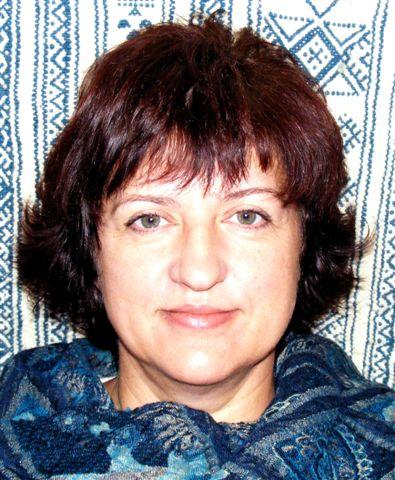 Katalin Czippán, since mid 2008, is the deputy head of department of the Parliamentary Commissioner for Future Generations responsible for education, awareness raising and organisational development issues. Katalin Czippán, since mid 2008, is the deputy head of department of the Parliamentary Commissioner for Future Generations responsible for education, awareness raising and organisational development issues.She served as a director for Environmental Education and Communication Program Office in Hungary (2000-2005), a governmental institute whose task was to develop strategies and policies for all type of education. She established and headed the Environmental Education Committee of the Ministry of Education in cooperation with the Ministry of Environment. managed projects of the Higher Education for Sustainability Program office at Eötvös Loránd University. She was the head of environmental education working group later the president and director of Göncöl Foundation, an environmental, conservationist, educational and cultural Hungarian NGO, for ten years (1986-1999). She played an active role in establishing the strong Hungarian environmental NGO platform and its funding and communication system. Ms Czippán is co-chair of the Social Awareness Subcommittee of the National Committee of Sustainable Development and invited expert of UNECE Expert Group on Competences in Education for Sustainable Development (ESD), more than 4 years she led the Environmental Education Committee of Ministry of Education. Ms Czippán is a member of various societies and NGOs engaged in the work for education for sustainability. She is the European vice chair and the member of the steering committee of the Commission on Education and Communication of IUCN. As a member of Hungarian Society for Environmental Education she co-ordinates the Hungarian part of SUPPORT network, and heads the international research and editorial team on “Schools as learning centres for sustainability”. She actively participated in the establishment of the Learning Organisations for Sustainability Foundation Hungary. |
| József Feiler |
 József Feiler has advanced degrees from History, Archeology (ELTE), Environmental Sciences (CEU) and International Affairs (Columbia Univ.). He was teaching assistant at the Budapest Technical University in 1997-98 at the Department of Information Engineering. He was serving as a Policy Coordinator for the CEE Bankwatch Network, an international NGO network monitoring the activities of international financial institutions between 1997 and 2003. He was heading the Climate Protection and Energy unit of the Hungarian Ministry of Environment and Water between 2003 and 2008. He joined to the office of the Parliamentary Commissioner in October 2008 and deals with legislation and government related investigations along with climate and energy issues. József Feiler has advanced degrees from History, Archeology (ELTE), Environmental Sciences (CEU) and International Affairs (Columbia Univ.). He was teaching assistant at the Budapest Technical University in 1997-98 at the Department of Information Engineering. He was serving as a Policy Coordinator for the CEE Bankwatch Network, an international NGO network monitoring the activities of international financial institutions between 1997 and 2003. He was heading the Climate Protection and Energy unit of the Hungarian Ministry of Environment and Water between 2003 and 2008. He joined to the office of the Parliamentary Commissioner in October 2008 and deals with legislation and government related investigations along with climate and energy issues.
|
| Sándor Fülöp |
 Mr Sándor Fülöp was elected to become Hungary’s first Parliamentary Commissioner for Future Generations on 26 May 2008. Mr Fülöp holds a degree in law from the Eötvös Loránd University of Sciences (1982) and a degree in psychology (1987). Between 1984 and 1991 he has worked as a public prosecutor at the Metropolitan and the National Chief Prosecutor’s Office. Following a short period of private legal practice at the international law firm Ruttner and Partners (1993-1994) Mr Fülöp acted, until his election as Commissioner, as the director of Hungary’s principal non-profit environmental law firm: the Environmental Management and Law Association (EMLA). During his career at EMLA he has also held a number of international positions. He participated in the drafting of the 1998 UN ECE Convention on Access to Information, Access to Decision-making and Access to Justice in Environmental Matters (the Aarhus Convention). Between 2002 and 2008 he was a member of the Compliance Committee of the Aarhus Convention. Mr Fülöp has been a university lecturer on environmental law since 1997. Mr Sándor Fülöp was elected to become Hungary’s first Parliamentary Commissioner for Future Generations on 26 May 2008. Mr Fülöp holds a degree in law from the Eötvös Loránd University of Sciences (1982) and a degree in psychology (1987). Between 1984 and 1991 he has worked as a public prosecutor at the Metropolitan and the National Chief Prosecutor’s Office. Following a short period of private legal practice at the international law firm Ruttner and Partners (1993-1994) Mr Fülöp acted, until his election as Commissioner, as the director of Hungary’s principal non-profit environmental law firm: the Environmental Management and Law Association (EMLA). During his career at EMLA he has also held a number of international positions. He participated in the drafting of the 1998 UN ECE Convention on Access to Information, Access to Decision-making and Access to Justice in Environmental Matters (the Aarhus Convention). Between 2002 and 2008 he was a member of the Compliance Committee of the Aarhus Convention. Mr Fülöp has been a university lecturer on environmental law since 1997. |
| István Garaguly |
 Dr. Garaguly István graduated as a lawyer (1997, ELTE Budapest) and a theologian (2006, Sapientia, affiliated to San Anselmo Pontifical Institute, Rome). He has gained experience in the local governmental sector, in the education, and privately as a non-profit legal advisor and solicitor. Dr. Garaguly István graduated as a lawyer (1997, ELTE Budapest) and a theologian (2006, Sapientia, affiliated to San Anselmo Pontifical Institute, Rome). He has gained experience in the local governmental sector, in the education, and privately as a non-profit legal advisor and solicitor.He joined to the mission and legal team of the Parliamentary Commisioner for Futurr Generations in the December of 2008. |
| Maja Göpel |
 In her engagement for fair and sustainable societies Maja combines theory with practice and works across disciplines and borders. She holds a PhD in Global Political Economy and a diploma in Media/Communications and worked with several non-governmental organizations on the link between ecology, globalization and justice. She lectured on International Relations and presented papers at academic conferences on the current model of economic globalization and its impact on the the environment and social equity before starting with the World Future Council in 2006. First occupied with Climate/Energy issues, Maja launched the Department on Future Justice in January 2008, working with its global Expert Commission towards a legal and policy framework that guarantees human security, ecological integrity, and social equity in the interest of future generations. Her particular passion lies in highlighting how worldviews and science influence judgments and activities. In her engagement for fair and sustainable societies Maja combines theory with practice and works across disciplines and borders. She holds a PhD in Global Political Economy and a diploma in Media/Communications and worked with several non-governmental organizations on the link between ecology, globalization and justice. She lectured on International Relations and presented papers at academic conferences on the current model of economic globalization and its impact on the the environment and social equity before starting with the World Future Council in 2006. First occupied with Climate/Energy issues, Maja launched the Department on Future Justice in January 2008, working with its global Expert Commission towards a legal and policy framework that guarantees human security, ecological integrity, and social equity in the interest of future generations. Her particular passion lies in highlighting how worldviews and science influence judgments and activities. |
| Gyöngyvér Gyene |
Gyöngyvér Gyene is a senior advisor at the Planning Department of the National Development Agency where her main areas of responsibility are public administration reform, agriculture and rural development, and the preparation of the Hungarian Sustainable Development Strategy. She first appeared at the Balaton Group meeting in 1988 when, as secretary general of the first Hungarian association of organic farmers, she was busy organizing an international conference on organic agriculture. Gyöngyvér is on a one-year sabbatical now to work on her PhD on Communicating sustainability. She has an MSc. In agriculture, and also studied English literature, law, and management, and her professional interests have been greatly influenced by the two years she spent in India studying the classical arts, and her in-house seven-year-old fairy tutor. |
| Attila Gyűrű |
Dr. Attila Gyűrű graduated from the Faculty of Law of Eötvös Lóránd University of Sciences in 2007. Between 2007 and 2008 he worked in the Ministry of Justice and Law Enforcement in the field of Justice and Home Affairs of the European Union. After the restructuring of the organization and the management of the ministry he worked in the Department of Constitution and took part in the coordination of the Hungarian legislation. He has been working for the Office of the Parliamentary Commissioner for Future Generations since October 2008 as a legal expert in environmental law. His main tasks are to monitor and to take part in the drafting of environmental laws relating to the issue of public participation in the decision making of authorities, and to deal with individual complaints relating to a broad range of environmental issues.
|
| Ted Heintz |
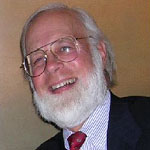 Ted is a recovering economist with over thirty years of experience in the US government, working on policies for managing natural and environmental resources. He has degrees in Electrical Engineering from Cornel University and Public Policy from Princeton University. After years of feeling uncomfortable working sometimes under US political leaders who pushed for rapid resource development and use and sometimes under leaders who pushed for conservation and preservation, he discovered the sustainable development movement. Since the mid 1990s he worked in many different forums to promote the development of indicators that would provide feedback to drive economic and public policy changes toward sustainability. From 2003 to 2008 he worked at the White House Council on Environmental Quality, attempting to get the US government to initiate development of a system of national environmental status and trend indicators. He is now retired and teaches sustainability at Oglethorpe University in Atlanta, Georgia. Ted is a recovering economist with over thirty years of experience in the US government, working on policies for managing natural and environmental resources. He has degrees in Electrical Engineering from Cornel University and Public Policy from Princeton University. After years of feeling uncomfortable working sometimes under US political leaders who pushed for rapid resource development and use and sometimes under leaders who pushed for conservation and preservation, he discovered the sustainable development movement. Since the mid 1990s he worked in many different forums to promote the development of indicators that would provide feedback to drive economic and public policy changes toward sustainability. From 2003 to 2008 he worked at the White House Council on Environmental Quality, attempting to get the US government to initiate development of a system of national environmental status and trend indicators. He is now retired and teaches sustainability at Oglethorpe University in Atlanta, Georgia. |
| Luca Horváth |
Luca Horvath gradueted at the Faculty of Law of the University of Szeged. She took part in a French law training and in a Master Training of European Law No.1 and No. 2. in French. She spent a year at the University of Geneva in order to take the Certificate of Transnational Law. The main topic of her thesis was the international regulation of GMO. She has been working at the Office for 2 months.
|
| László Jánossy |
 I have studied biology and chemistry at the Eötvös Loránd University, Budapest, 1973-1978 (2 years study of hydrobiology included). In 1993, as I have finished Tempus Course on Environmental Science and Engineering at the International Technological University, Paris-Budapest, I have got masters degree in environmental management. (Special studies in environmental problems of water management and agriculture.) I have studied biology and chemistry at the Eötvös Loránd University, Budapest, 1973-1978 (2 years study of hydrobiology included). In 1993, as I have finished Tempus Course on Environmental Science and Engineering at the International Technological University, Paris-Budapest, I have got masters degree in environmental management. (Special studies in environmental problems of water management and agriculture.)As a biologist I have studied the effect of environmental carcinogens on fish and mammals. In the National Institute of Hygiene I have done water microbiology and water biology. Later, as the director of the central office of Birdlife International/Hungarian Ornithological and Nature Protection Society I have taken part in organising different nature protecting and Life programs. Three years long I have worked as the zoological director of Budapest Zoo and Botanical Garden, planning the animal collection, organising animal exchange and managing the nature protection programs of the Zoo. During the last four years I have been environmental program manager of the Middle-Danube-Valley Environmental and Water Directorate in Budapest, working also on all nature protecting problems emerging at the Directorate. Since June 2009 I work in the Office of the Parliamentary Commissioner for Future Generations trying to solve problems mainly in the field of water management and nature protection. |
| Dmitri Kavtaradze |
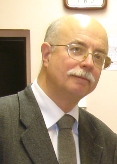 Graduated from Moscow State University in biology, 1970. Present interests include simulation games and interactive methods research and design; urban ecology and sustainable development. Present position as Head of lab. Development of science. Previous positions include Department Natural Resource Management (Faculty of Government Management), and Head of the Laboratory of Ecology and Nature conservation, Biological faculty, Moscow State University. President Putin Award for education (sustainable development, 2000). More than 200 articles in Scientific magazines and books, including around 16 simulation games and manuals. Initiator of the toolkit design "Green Backpack" (2003)— decision making training in environmental education (20 simulation games, toys and interactive posters). Graduated from Moscow State University in biology, 1970. Present interests include simulation games and interactive methods research and design; urban ecology and sustainable development. Present position as Head of lab. Development of science. Previous positions include Department Natural Resource Management (Faculty of Government Management), and Head of the Laboratory of Ecology and Nature conservation, Biological faculty, Moscow State University. President Putin Award for education (sustainable development, 2000). More than 200 articles in Scientific magazines and books, including around 16 simulation games and manuals. Initiator of the toolkit design "Green Backpack" (2003)— decision making training in environmental education (20 simulation games, toys and interactive posters). |
| Piotr Magnuszewski |
 Piotr Magnuszewski is a leader of the program “Modeling, Environment, Society” at Centre for Systems Solutions and a Research Scholar at the Risk and Vulnerability Program at the International Institute for Applied Systems Analysis in Austria. He is currently involved in research through several EU projects on management of complex social-ecological systems. He is using participatory quantitative and qualitative modeling techniques as well as simulation and role-playing games. He developed an interactive role-playing, board game addressing the issues of floodplain management. He is particularly interested in linking theory and practice, science and policy, knowledge and action through diverse systems and knowledge management tools. He was applying and teaching systems tools with diverse groups of scientists, NGOs, businesses and administration in many countries. Piotr Magnuszewski is a leader of the program “Modeling, Environment, Society” at Centre for Systems Solutions and a Research Scholar at the Risk and Vulnerability Program at the International Institute for Applied Systems Analysis in Austria. He is currently involved in research through several EU projects on management of complex social-ecological systems. He is using participatory quantitative and qualitative modeling techniques as well as simulation and role-playing games. He developed an interactive role-playing, board game addressing the issues of floodplain management. He is particularly interested in linking theory and practice, science and policy, knowledge and action through diverse systems and knowledge management tools. He was applying and teaching systems tools with diverse groups of scientists, NGOs, businesses and administration in many countries. |
| Dennis Meadows |
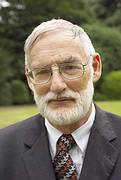 He has earned degrees in Chemistry and Management, with a special focus on formal methods for analyzing the behaviour social systems and on the management of programs to develop and implement new technologies. He is an empiricist – always open to the possibility that human life is under some sort of divine spiritual influence, but so far a convinced atheist who feels repugnance for religious arrogance and dogmatism of any sort. In place of formal religion he has adopted a set of principles. Foremost among them are, “Always tell the truth.” And, “In your dealings with others, always try to leave them with more attractive options than they had when you first met them.” During his 35 years of professional work Dennis was the founder and director of three quite different, university-based policy institutes in the United States. He has lived for three months or more in five different countries and visited about 50 nations for a variety of professional and personal reasons. He thinks that both the physical and social aspects of the planet are extremely complicated. No reality offers the option of simple choices. It is impossible to predict the future precisely, but essential to think about the future in general terms. Unfortunately, Dennis cannot imagine any very happy results from the policies that are being pursued by the dominant cultures today. He expects to have one more decade for creative, intellectual work, and he is trying to eliminate many of the obligations that currently fill his time, so he can do something really interesting and new. He will devote the next ten years to creating a wide variety of books and active learning tools that convey essential ideas about sustainable use of energy and resources and policies that facilitate the transition to a world that lives within its limits. He has earned degrees in Chemistry and Management, with a special focus on formal methods for analyzing the behaviour social systems and on the management of programs to develop and implement new technologies. He is an empiricist – always open to the possibility that human life is under some sort of divine spiritual influence, but so far a convinced atheist who feels repugnance for religious arrogance and dogmatism of any sort. In place of formal religion he has adopted a set of principles. Foremost among them are, “Always tell the truth.” And, “In your dealings with others, always try to leave them with more attractive options than they had when you first met them.” During his 35 years of professional work Dennis was the founder and director of three quite different, university-based policy institutes in the United States. He has lived for three months or more in five different countries and visited about 50 nations for a variety of professional and personal reasons. He thinks that both the physical and social aspects of the planet are extremely complicated. No reality offers the option of simple choices. It is impossible to predict the future precisely, but essential to think about the future in general terms. Unfortunately, Dennis cannot imagine any very happy results from the policies that are being pursued by the dominant cultures today. He expects to have one more decade for creative, intellectual work, and he is trying to eliminate many of the obligations that currently fill his time, so he can do something really interesting and new. He will devote the next ten years to creating a wide variety of books and active learning tools that convey essential ideas about sustainable use of energy and resources and policies that facilitate the transition to a world that lives within its limits. |
| Gillian Martin Mehers |
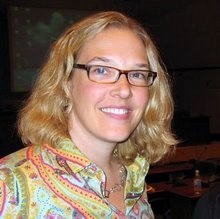 Gillian, founder of Bright Green Learning, was most recently the Head of Learning and Leadership at IUCN. Previous to this she worked as the Director of Capacity Development at LEAD International where for the previous seven years she built LEAD’s global training curriculum, signature interactive methodology and partnership portfolio. Prior to this, Gillian worked at the International Academy of the Environment (IAE), Geneva, Switzerland, and for the International Labour Office (ILO) in Geneva. Gillian’s expertise is in creating experiential learning environments, curriculum and training materials development, and interactive training design. She has worked as a facilitator and trainer, particularly in the core leadership skills of systems thinking, cross-cultural communication, environmental communication planning, teambuilding and networking, and environmental conflict management. She is an experienced process facilitator, and has developed and implemented training-of-trainers activities internationally. Gillian lives in Switzerland with her husband, Damian, and two sons, Atticus (6) and Theodore (4). Gillian, founder of Bright Green Learning, was most recently the Head of Learning and Leadership at IUCN. Previous to this she worked as the Director of Capacity Development at LEAD International where for the previous seven years she built LEAD’s global training curriculum, signature interactive methodology and partnership portfolio. Prior to this, Gillian worked at the International Academy of the Environment (IAE), Geneva, Switzerland, and for the International Labour Office (ILO) in Geneva. Gillian’s expertise is in creating experiential learning environments, curriculum and training materials development, and interactive training design. She has worked as a facilitator and trainer, particularly in the core leadership skills of systems thinking, cross-cultural communication, environmental communication planning, teambuilding and networking, and environmental conflict management. She is an experienced process facilitator, and has developed and implemented training-of-trainers activities internationally. Gillian lives in Switzerland with her husband, Damian, and two sons, Atticus (6) and Theodore (4). |
| Dóra Mogyorósi |
Qualifications
Practice in bioethics and medical law
Practice on environmental problems
|
| Jørgen Nørgård |
Associate Professor Emeritus. Born in 1933 in Denmark and grew up at small farm. Educated as a mechanic before attending DTU. Received an MSc. And PhD in Engineering and Physics at DTU. Since 1970 worked there with teaching and research on how to achieve environmental sustainability through changes in technology, economics, quality of life, etc. with special expertise in energy savings and energy planning. Has internationally acted ad lecturer, advisor, and writer and still maintains an extensive international network. Continues the work as emeritus at the same university. |
| Valentino Piana |
Economist and consultant. After graduating with a dissertation on Industrial Dynamics, where he tackled the issue e.g. of the analysis of high-dimensional stochastic path-dependent models, he went teaching Macroeconomics in Poland, closing this period with the book “How macroeconomics is changing thanks to computer”. When returned to Italy, he went to work in a strategic consulting firm, for projects linked to e.g. local development, innovation promotion, tourism, traditional food. Meanwhile, he established the Economics Web Institute, where continued to freely advance his scientific works, read by more than 1 800 000 visitors. Building on this success and the network of experts cooperating with it, the Institute is now a platform to develop projects and consulting, with a special emphasis on climate change. In June, he has organized an international symposium – from which a book is being published – about “Innovative Economic Policies for Climate Change Mitigation”. |
| László Pintér |
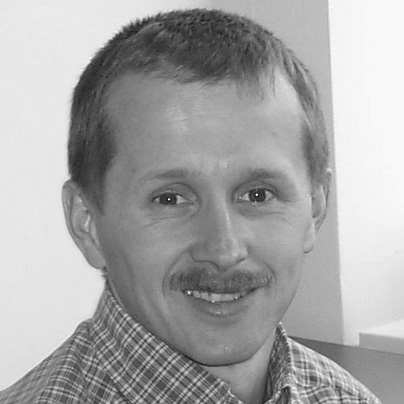 László Pintér is Director of the Measurement and Assessment Program of the International Institute for Sustainable Development (IISD), headquartered in Winnipeg, Canada ( www.iisd.org). Having joined IISD in 1994 and serving as Program Director since 2003, his role is to provide strategic leadership to an international team of high caliber professionals and ensure program influence according to IISD’s overall vision and mission. His main interest is in addressing today's fundamental challenges to sustainability by changing the way we measure progress and by crafting and implementing effective sustainable development strategies. Over his career László has worked on conceptual and applied aspects of these issues with many organizations, ranging from various UN and aid agencies and development banks to rural communities on four continents. He holds a Ph.D. from the University of Minnesota in the United States, a Master of Natural Resources Management from the University of Manitoba, Canada, and an M.Sc. in Agronomy from St. Stephen University in Hungary. During 2000-01 he spent ten months as a Global Environmental Assessment Practitioner Fellow at the Kennedy School of Government, Harvard University, where he carried out research on the relationship between global integrated environmental assessment system design and effectiveness. He makes his home with his wife and three children in Winnipeg, Canada and Győrújbaráthegy, Hungary. László Pintér is Director of the Measurement and Assessment Program of the International Institute for Sustainable Development (IISD), headquartered in Winnipeg, Canada ( www.iisd.org). Having joined IISD in 1994 and serving as Program Director since 2003, his role is to provide strategic leadership to an international team of high caliber professionals and ensure program influence according to IISD’s overall vision and mission. His main interest is in addressing today's fundamental challenges to sustainability by changing the way we measure progress and by crafting and implementing effective sustainable development strategies. Over his career László has worked on conceptual and applied aspects of these issues with many organizations, ranging from various UN and aid agencies and development banks to rural communities on four continents. He holds a Ph.D. from the University of Minnesota in the United States, a Master of Natural Resources Management from the University of Manitoba, Canada, and an M.Sc. in Agronomy from St. Stephen University in Hungary. During 2000-01 he spent ten months as a Global Environmental Assessment Practitioner Fellow at the Kennedy School of Government, Harvard University, where he carried out research on the relationship between global integrated environmental assessment system design and effectiveness. He makes his home with his wife and three children in Winnipeg, Canada and Győrújbaráthegy, Hungary. |
| Vala Ragnarsdottir |
 Vala Ragnarsdottir is the Dean of Engineering and Natural Sciences at the University of Iceland. She previously served on the faculty of the University of Bristol, UK. A soil scientist, she advises scientific programs for the European Commission in Brussels; and she also founded very successful local community sustainability programs in Bristol before her recent relocation to her native Iceland. Vala Ragnarsdottir is the Dean of Engineering and Natural Sciences at the University of Iceland. She previously served on the faculty of the University of Bristol, UK. A soil scientist, she advises scientific programs for the European Commission in Brussels; and she also founded very successful local community sustainability programs in Bristol before her recent relocation to her native Iceland. |
| Lars Rydén |
 Lars, at the time an associate professor of biochemistry, became increasingly involved in international cooperation and peace, ethics and environmental issues in the 1980s, contributed to forming Swedish Scientists against nuclear arms, the Uppsala Seminar on research ethics and then worked with Tufts University, USA and Tokai University, Japan in forming the Talloires University Network, a global university network, to promote disarmament and global education. In 1989, when the political situation changed dramatically, he started to work for university cooperation in the Baltic Sea region, which led to the Baltic University Programme (BUP) in 1991. This network, which today has 220 member universities in 13 countries, has created bachelor and master courses in environmental science and sustainable development, today studied by 10,000 students yearly. Lars has himself increasingly focused on sustainability strategies for cities. He has written extensively in the areas mentioned. He has two children, two grandchildren and 5 brothers and sisters to support him. Lars, at the time an associate professor of biochemistry, became increasingly involved in international cooperation and peace, ethics and environmental issues in the 1980s, contributed to forming Swedish Scientists against nuclear arms, the Uppsala Seminar on research ethics and then worked with Tufts University, USA and Tokai University, Japan in forming the Talloires University Network, a global university network, to promote disarmament and global education. In 1989, when the political situation changed dramatically, he started to work for university cooperation in the Baltic Sea region, which led to the Baltic University Programme (BUP) in 1991. This network, which today has 220 member universities in 13 countries, has created bachelor and master courses in environmental science and sustainable development, today studied by 10,000 students yearly. Lars has himself increasingly focused on sustainability strategies for cities. He has written extensively in the areas mentioned. He has two children, two grandchildren and 5 brothers and sisters to support him. |
| István Sárközy |
|
| Chirapol Sintunawa |
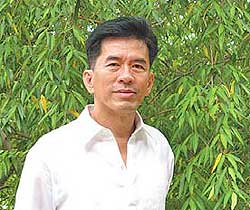 Chirapol Sintunawa is a lecturer at the Facility of Environment and Resource Studies at Mahidol University and a vice president of two non-profit ematerializa ; The Association for the Development of Environmental Quality and the Green Leaf Foundation. He works with various organizations and individuals to influence changes in Thailand on Environment and Energy issues using system thinking to identify leverages that would encourage participation from all parties to work together toward short and long term solutions. He has been a member of the Balaton Group for twenty four years and what he has learned from the Balaton Group has enabled him to work proactively with government and private sectors in Thailand. Chirapol Sintunawa is a lecturer at the Facility of Environment and Resource Studies at Mahidol University and a vice president of two non-profit ematerializa ; The Association for the Development of Environmental Quality and the Green Leaf Foundation. He works with various organizations and individuals to influence changes in Thailand on Environment and Energy issues using system thinking to identify leverages that would encourage participation from all parties to work together toward short and long term solutions. He has been a member of the Balaton Group for twenty four years and what he has learned from the Balaton Group has enabled him to work proactively with government and private sectors in Thailand. |
| Isak Stoddard |
 I am in the process of completing my Masters thesis in Engineering Physics, where I have focused on developing cheap, communal biogas systems in cooperation with dairy farmers in rural west Java. The project was a result of meeting Any Sulistyowati at last years Balaton meeting in Stockholm, which in turn was thanks to Alan AtKisson who had asked me to help out with logistics for the meeting. I currently reside in Sweden, in the town of Uppsala, where I have lived on and off since birth (in the off periods my home has been Southern California, Vancouver and Spain). Since 2005 I have developed and coordinated ESD courses at the student-run Centre for Environment and Development Studies (Cemus) at Uppsala University. I have also worked for a number of years with a global communication and empowerment project for children around the world. At the moment I am planning my future while trying to live in the present. On the top of my list of crazy ideas, is to create a retreat/training center/”mountain university”/meeting-place focusing on personal -and collective learning, transition, survival and happiness. I am in the process of completing my Masters thesis in Engineering Physics, where I have focused on developing cheap, communal biogas systems in cooperation with dairy farmers in rural west Java. The project was a result of meeting Any Sulistyowati at last years Balaton meeting in Stockholm, which in turn was thanks to Alan AtKisson who had asked me to help out with logistics for the meeting. I currently reside in Sweden, in the town of Uppsala, where I have lived on and off since birth (in the off periods my home has been Southern California, Vancouver and Spain). Since 2005 I have developed and coordinated ESD courses at the student-run Centre for Environment and Development Studies (Cemus) at Uppsala University. I have also worked for a number of years with a global communication and empowerment project for children around the world. At the moment I am planning my future while trying to live in the present. On the top of my list of crazy ideas, is to create a retreat/training center/”mountain university”/meeting-place focusing on personal -and collective learning, transition, survival and happiness. |
| Catharina Any Sulistyowati |
 Catharina Any Sulistyowati graduated from MA Program in Development Studies from Institute of Social Studies, The Hague in 2001. She works in KAIL (Kuncup Padang Ilalang), an NGO which does capacity building for youth so they have awareness of environmental and social problems. She used a lot of System Thinking elements as part of her training modules. She has various training and facilitating experience, ranges from very local level such as facilitating women’s group meeting in rural area to team building for international organization. Her concern are mostly on study skills, planning and evaluation, capacity building for increasing people’s awareness and analytical skills to address environmental and social problems. Catharina Any Sulistyowati graduated from MA Program in Development Studies from Institute of Social Studies, The Hague in 2001. She works in KAIL (Kuncup Padang Ilalang), an NGO which does capacity building for youth so they have awareness of environmental and social problems. She used a lot of System Thinking elements as part of her training modules. She has various training and facilitating experience, ranges from very local level such as facilitating women’s group meeting in rural area to team building for international organization. Her concern are mostly on study skills, planning and evaluation, capacity building for increasing people’s awareness and analytical skills to address environmental and social problems. |
| Éva Tóth |
Ms Eva Toth is an international legal adviser at the Department of International Relations, Office of the Parliamentary Commissioner for Future Generations. She holds a law degree, MS in Chemistry and English and LL.M. in International Trade Law (University of Arizona). After graduation she moved to the United States where she worked for an NGO providing legal services to political asylum seekers. Later she joined a small law office specialised in immigration law. Following her return to Hungary in 2006 she was an international legal adviser at the Office of the Parliamentary Commissioner for Data Protection and Freedom of Information (2006-2008). |
| Elek Turda |
Elek Turda earned a degree mechanical engineering (a profession that is very much contrary to his deceivingly low-key, but exuberant self) and currently works in an office involved in energy management. His main field of interest are energy efficiency and the use of renewable energies. His true interest in the field is proven by the fact that he is part owner of an energy crop plantation. He works as an expert – and a true activist – in the field of environmental protection and assists the “green” organizations, interested municipalities and media experts.
In his spare time (what little remains from 8 p.m. to 6 a.m.), he plays water polo (also president of his club), assists the rowing club of fellow employees and is also involved in other charity work. |
| Stephanie Weis-Gerhardt |
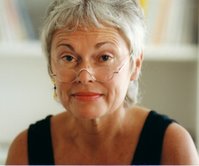 Born in 1950 I did what I was supposed to do by my parents, by my middle class German background... I went to college, to university, did my exams (comparative literature) and got married. Yet, when my son Frederik was born (1977) I became an environmentalist, an activist and got involved into politics later. This commitment to GAIA led me to the path where I am still on… by now I’m program manager of a private foundation and spend most of my time in networking, bringing together experts and change agents from different disciplines who work on the issue of ematerialization. The goal: To serve as neutral platform to bring this issue into the public sphere, to sell its benefits to different target groups such as SME, politicians etc. as our present production and consumption patterns exceed the carrying capacity of the Earth. Born in 1950 I did what I was supposed to do by my parents, by my middle class German background... I went to college, to university, did my exams (comparative literature) and got married. Yet, when my son Frederik was born (1977) I became an environmentalist, an activist and got involved into politics later. This commitment to GAIA led me to the path where I am still on… by now I’m program manager of a private foundation and spend most of my time in networking, bringing together experts and change agents from different disciplines who work on the issue of ematerialization. The goal: To serve as neutral platform to bring this issue into the public sphere, to sell its benefits to different target groups such as SME, politicians etc. as our present production and consumption patterns exceed the carrying capacity of the Earth. |
| Diana Wright |
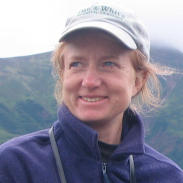 Diana Wright is a freelance researcher, editor, and consultant with a background in ecology and soil chemistry. She has worked on a variety of sustainability topics including the dynamics of commodity systems, energy and climate change — often bringing to the work an educational or cross-cultural focus. Most recently, she worked at the Sustainability Institute (SI) as Researcher and Director of Publications. While there, she edited and brought to publication Thinking in Systems, by Donella Meadows (2008). Prior to joining SI, she collaborated for more than a decade with Donella Meadows and contributed of much of the research incorporated into Beyond the Limits, and The Limits to Growth: Thirty Year Update. Diana is a board member and advisor to a number of groups working on issues of sustainability at levels ranging from the local to the international. She lives with her husband and two children on their hill farm in Thetford, Vermont. M.S. Forest Ecology, University of Michigan. Diana Wright is a freelance researcher, editor, and consultant with a background in ecology and soil chemistry. She has worked on a variety of sustainability topics including the dynamics of commodity systems, energy and climate change — often bringing to the work an educational or cross-cultural focus. Most recently, she worked at the Sustainability Institute (SI) as Researcher and Director of Publications. While there, she edited and brought to publication Thinking in Systems, by Donella Meadows (2008). Prior to joining SI, she collaborated for more than a decade with Donella Meadows and contributed of much of the research incorporated into Beyond the Limits, and The Limits to Growth: Thirty Year Update. Diana is a board member and advisor to a number of groups working on issues of sustainability at levels ranging from the local to the international. She lives with her husband and two children on their hill farm in Thetford, Vermont. M.S. Forest Ecology, University of Michigan. |
| János Zlinszky |
 ZLINSZKY János is Head of Department for Strategy and Research in the Office of the Parliamentary Commissioner for Future Generations. He also serves as Senior Adviser for Environmental Policy to the President of Hungary, Senior Adviser to the Executive Director of the Regional Environmental Center for Central and Eastern Europe (REC), Szentendre, Hungary, and Associate Professor at the Department for Environmental Law and Competition Law, Faculty of Law, Pázmány Péter Catholic University, Budapest. ZLINSZKY János is Head of Department for Strategy and Research in the Office of the Parliamentary Commissioner for Future Generations. He also serves as Senior Adviser for Environmental Policy to the President of Hungary, Senior Adviser to the Executive Director of the Regional Environmental Center for Central and Eastern Europe (REC), Szentendre, Hungary, and Associate Professor at the Department for Environmental Law and Competition Law, Faculty of Law, Pázmány Péter Catholic University, Budapest. Since 2004 he has been involved in the design, management and teaching responsibilities of the Course for Sustainability, a course for key government officials to help them make more sustainable policies. This course is run in a partnership, particularly with Venice International University, supported by the Italian Ministry for Environment and Territory. In 2003, he was working with the École Supérieure de Commerce et de Management (ESCEM, France) as a Visiting Professor where he designed and taught a course in Sustainable Development. His prior teaching and research includes work at Carleton University, Ottawa and a fellowship with Cambridge University, teaching courses in environmental politics in the MSc Programme, introductory courses for the MLa in environmental law. In 1996 he set up the department for environment studies at the Catholic University in Hungary. Dr Zlinszky has published extensively and presented at many conferences over the years. His qualifications include doctorates in Natural Sciences and Environmental Biology from the Eötvös Loránd University, Budapest and PhD from the University of Ulster, Coleraine, United Kingdom. Dr Zlinszky is a member of various learned societies and NGOs engaged in the work for sustainability, among them with the Societas Internationalis Limnologiae, and the Francis Assisi Academy. He is married with three children. |